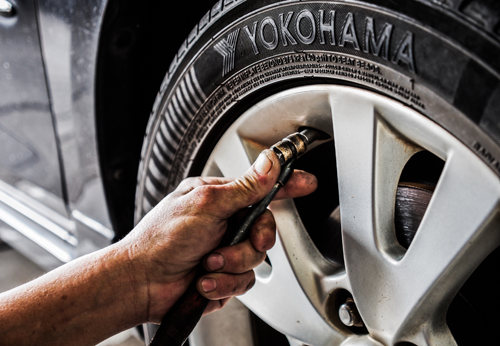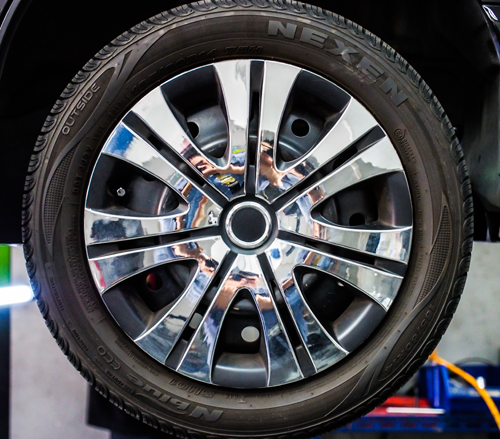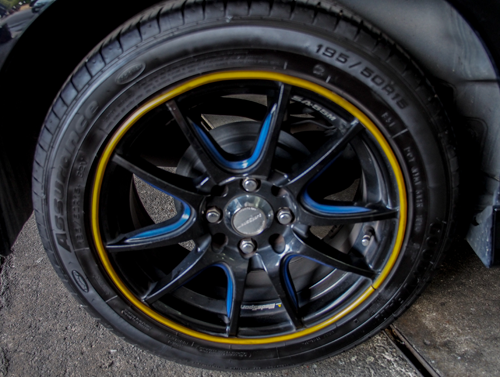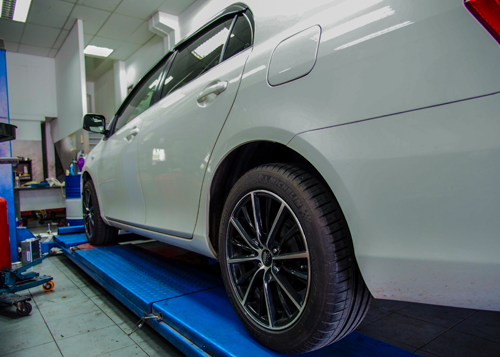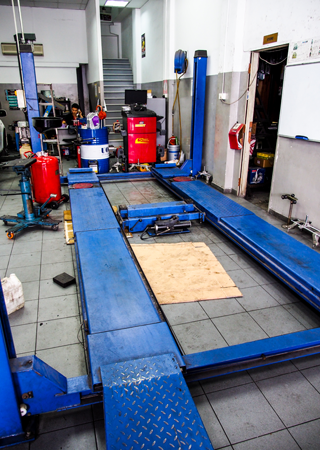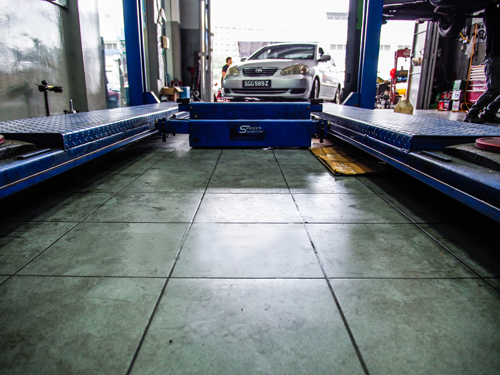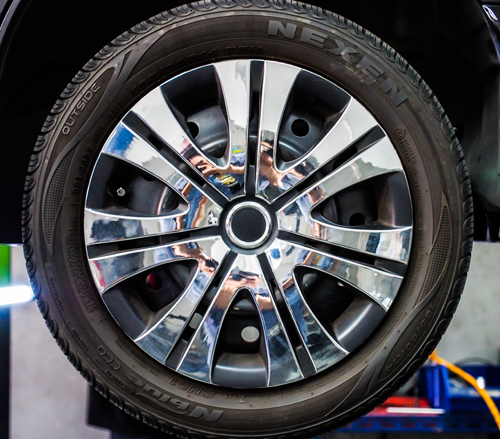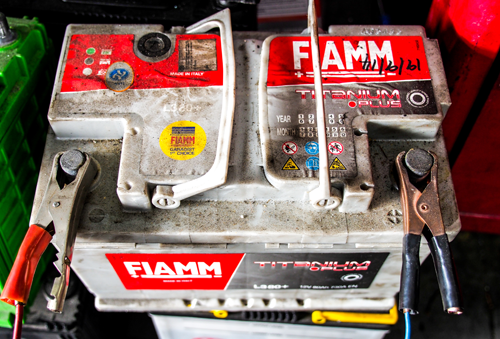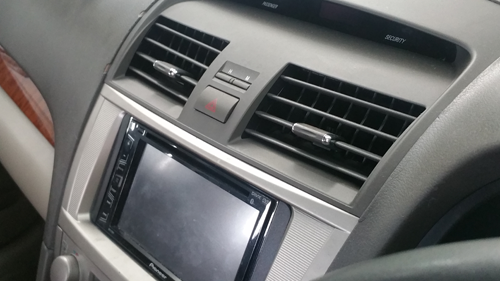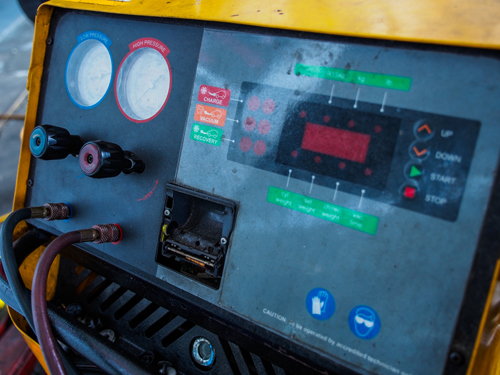Since refrigerant acts as a working fluid much like how motor oil is the fluid which provides lubrication to protect the engine, a refrigerant breakdown will result in ugly wear and tear, starting in the compressor. From there, the sharp and grimy metal particles created during compressor breakdown can then travel through the rest of your car aircon system, wreaking havoc on the entire system. All cold air, and airflow for that matter, will be long gone even before you send your car to the car aircon service centre for some checking.
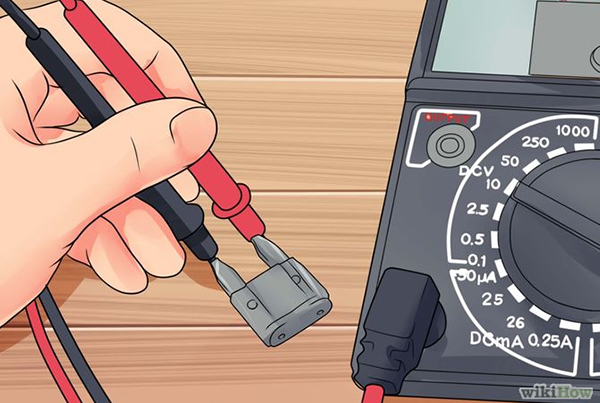
Why does my aircon have weak airflow?
If you notice reduced airflow early on –rather than later– take the right step and bring your car to the car aircon service centre and have it looked at before other fatal aircon system damage can occur.
Main causes of weak airflow:
Mold or mildew may have accumulated in the evaporator core from residual moisture that occurs during the cooling process. When this happens, air will have trouble reaching your air vents.
A hose has come loose. This usually happens with the blower hose that supplies air to the blower unit.
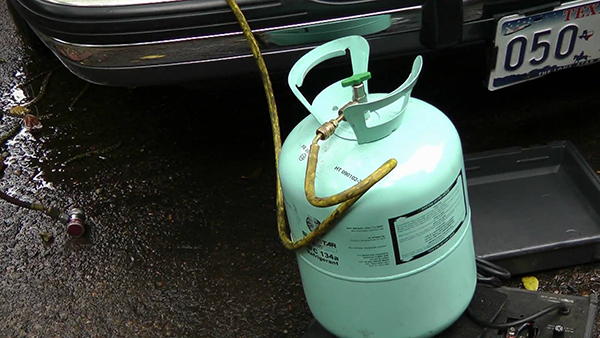
Ventilation fan is damaged. If the fan’s not blowing, air won’t be flowing very well.
Seals. Core case seals, blower house seals or evaporator core case seals; all can open up and diminish air flow. Aircon ventilation systems are very sensitive and must remain sealed. Once they’re opened, the whole system is compromised.
Are there any system warning lights to alert me to an aircon problem?
Typically, no, but some vehicles have Driver Information Centres (DIC) that may display the status of many vehicle systems.
My aircon isn’t as cold as it used to be, what’s going on?
There are several reasons an aircon system can lose its cool. It may be caused by:-
1. A Freon leak caused by a failed o-ring, seal, hose or component
2. A clogged expansion tube or refrigerant charging hose
3. Failed compressor or compressor clutch
4. Failed blower motor or blower motor resistor
5. Damaged or failed condenser or evaporator
6. Vacuum leaks
7. Failed switch, fuse, relay, control module, blend door or solenoid
The aircon starts out cool then starts getting warm, what’s happening?

From cold to hot and all the symptoms in between:
The clogged expansion valve: The expansion valve distributes the proper amount of refrigerant to your evaporator. If the valve is blocked, the refrigerant can’t flow into the evaporator. With the valve clogged, the refrigerant will start to freeze the valve altogether if moisture is present.
Faulty compressor clutch: If the clutch is not engaging with your compressor, than your compressor can’t maintain the correct pressure. Hot air will result.
The blown fuse scenario: Fuses sometimes short out. If the fuse associated with your aircon system goes, the power to certain parts will stop.
Leaks can be devastating.
When an aircon system develops a leak, you have what’s called an “open system. Unfortunately, if a leak has been affecting your cold air for a while, moisture will most likely have entered your aircon system and may have damaged other vital and expensive parts.
Leaks are an aircon system’s worst friend: Leaks are the result of damage or the presence of moisture. When moisture and refrigerant mix, nasty corrosive acids will eat away at seals and components, causing a leak.
What is the smelly, odour coming from my aircon vents?
Potential causes of nasty odours:
Dirty and old air cabin filter.
Mouldy evaporator case. It is caused when water sits in the evaporator case because the case’s drain is blocked. Mould will accumulate.
How do you test for an aircon system leak?
Detecting leaks:
A lot of refrigerants are pre-mixed with a special U.V. dye that shows up under black light. Run a black light over your aircon system to see if any dye shows up.
Bring in the “sniffer.” A sniffer is a special device that hones in on the refrigerant’s chemical components. If there’s a leak, the sniffer will sniff it out.
What causes an aircon system leak?
Age and moisture cause aircon system to leak. Rubber seals and hoses can also lose their elasticity over time and breakdown allowing Freon to escape and moisture to enter your vehicle’s aircon system. Moisture is the culprit to your aircon system failure, mixing with refrigerant and creating a system destroying corrosive acid.
Quick fact
If you send your car to a car aircon service centre, the most important thing is to check if there is any leaking from your car aircon. If moisture is present, it could damage your accumulator, receiver or drier. Remember, these devices are responsible for removing moisture from the aircon system and will eventually stop functioning once they are exposed to an open system (leak or crack).







